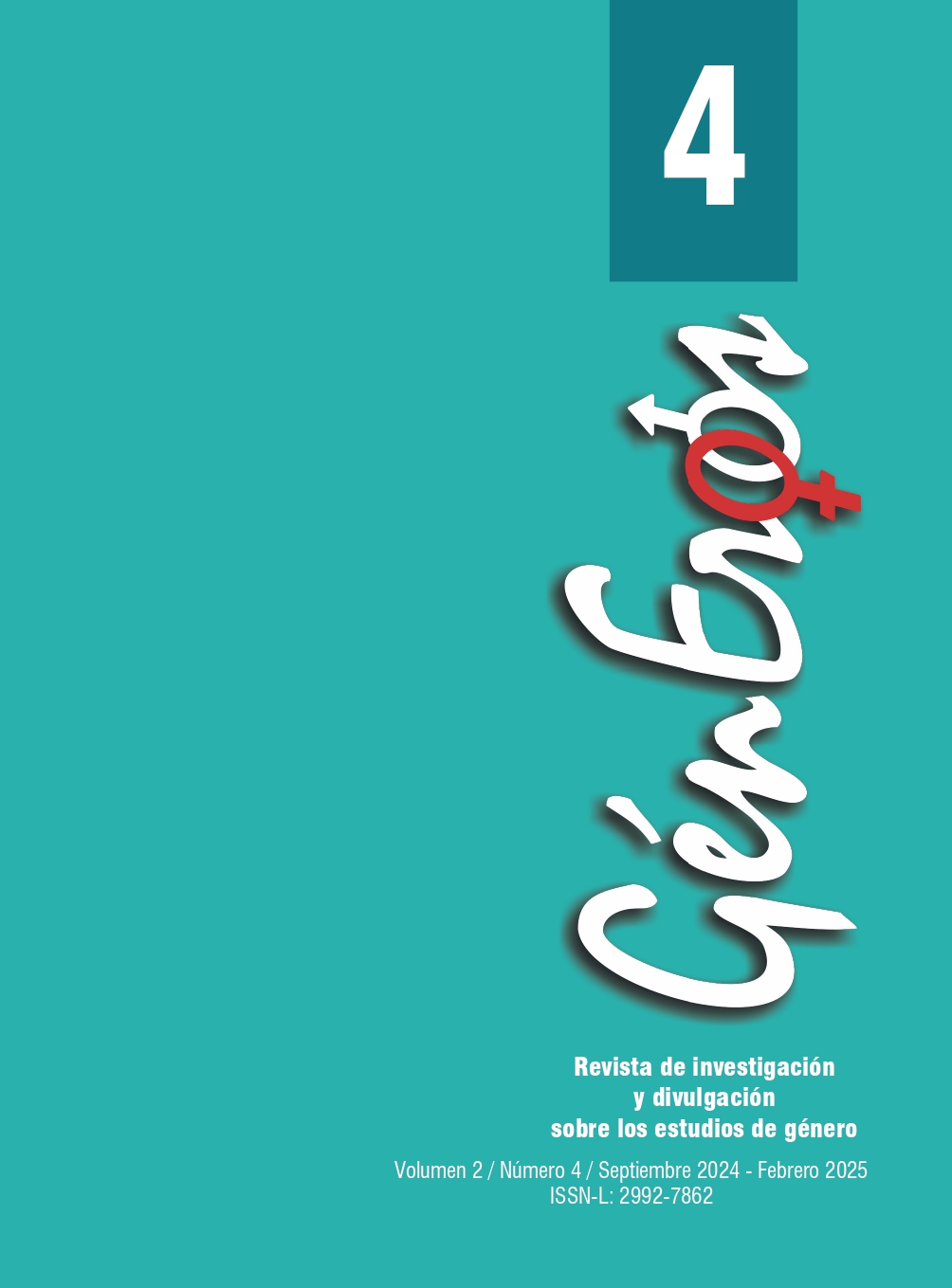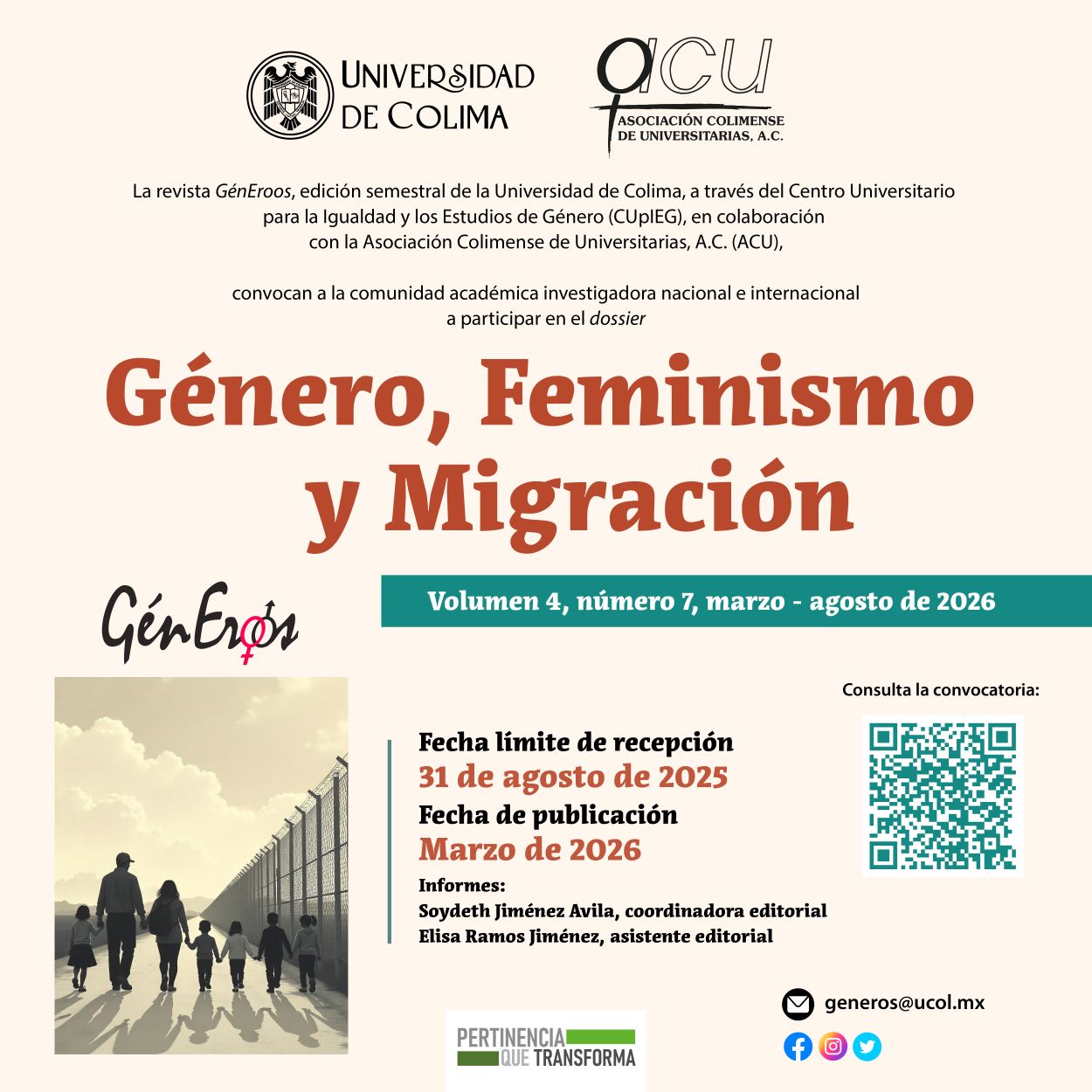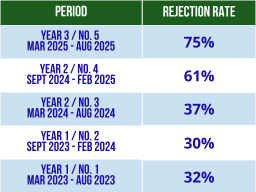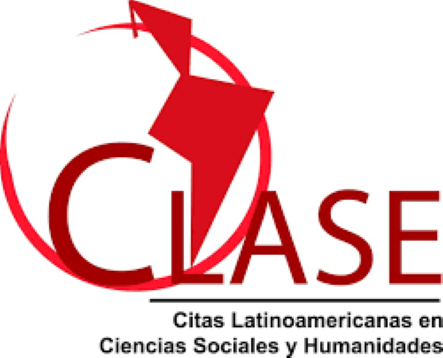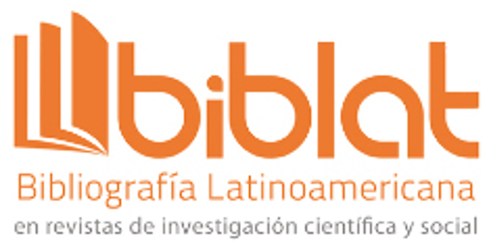On the paradigm of health centered on weight: a questioning in a decolonial and gender key
Is a revolution towards an health at every size model necessary?
DOI:
https://doi.org/10.53897/RevGenEr.2024.04.08Keywords:
science, weight-centeredness, gender, race, health at all sizes model (haes)Abstract
Until the twentieth century, science had been considered a neutral and objective discipline that, although it could lead society to development, would have to remain aloof from its implications and values. This article recovers the contributions that, from the discipline of Science, Technology and Gender (STG), have been made in order to bring to light the underlying gender implications of science with the aim of questioning one of the most influential scientific paradigms in recent decades: the weight-centered health paradigm (WHP). From a feminist and decolonial perspective, we will investigate how fatphobia and its scientistic dimension, weight-centric, are intertwined with gender and racial inequalities and contribute to their perpetuation. It will also
expose the scientific anomalies that this classical approach to health must confront, and will ultimately advocate for a more inclusive model of health that promotes the development of society in the eradication of gender and racial inequalities
Downloads
Metrics
References
Adlbi Sibai, S. (2018). La cárcel del feminismo: Hacia un pensamiento islámico decolonial. Ediciones Akal.
Aguilera, C.; Labbé, T.; Busquets, J.; Venegas, P.; Neira, C. y Valenzuela, Á. (2019). Obesidad: ¿Factor de riesgo o enfermedad? Revista médica de Chile, 147(4), 470- 474. https://doi.org/10.4067/S0034-98872019000400470
Albet Castillejo, L. (2021). Repensar el cuerpo gordo desde la Filosofía de Michel Foucault: biopolítica, disciplina y género. Investigación Joven con Perspectiva de Género VI. 123-134.
https://e-archivo.uc3m.es/entities/publication/98d9974e-09ae-48f7-9123-0fd9692a0bf4
Albet Castillejo, L. (2022). La epidemia de obesidad como discurso biopolítico. Control corporal y ética de la biociudadanía. Astrolabio: Revista Internacional de Filosofia (26). 145-158. https://dialnet.unirioja.es/servlet/articulo?codigo=8990442
Álvarez Castillo, C. (2014). La cerda punk. Ensayos desde un feminismo gordo, lésbiko, antikapitalista y antiespecista. Trío Editorial.
Arboleda Gómez, R. (2009). La dietética, un dispositivo biopolítico para el control del cuerpo. Separata. Perspectivas en Nutrición Humana. 31-40. https://revistas.udea.edu.co/index.php/nutricion/article/view/337452
Arbués, E.R.; Martínez-Abadía, B.; Gracía-Tabuenca, T.; Yuste-Gran, C.; Pellicer- García, B.; Juárez-Vela, R.; Guerrero-Portillo, S. y Sáez-Guinoa, M. (2019). Prevalencia de sobrepeso/obesidad y su asociación con diabetes, hipertensión, dislipemia y síndrome metabólico: estudio transversal de una muestra de trabajadores en Aragón, España. Nutrición Hospitalaria, 36(1), 51-59. http://dx.doi.org/10.20960/nh.1980
Atalah, S.E. (2012). Epidemiología de la obesidad en Chile. Revista Médica Clínica Las Condes, 23(2), 117-123. https://doi.org/10.1016/S0716-8640(12)70287-0
Bacon, L. y Aphramor, L. (2011). Ciencia del peso: Evaluando la evidencia para un cambio de paradigma. Nutritional Journal, 10(9). 1-13. https://doi.org/10.1186/1475-2891-10-9
Blázquez Graf, N. (2011). El retorno de las brujas. Incorporación, aportaciones y críticas de las mujeres a la ciencia. Centro de Investigaciones Interdisciplinarias en Ciencias y Humanidades, UNAM. https://ru.ceiich.unam.mx/handle/123456789/2889
Blazquez Graf, N. y Chapa Romero, A.C. (2012). Inclusión del análisis de género en la ciencia. Universidad Nacional Autónoma de México. Centro de Investigaciones Interdisciplinarias en Ciencias y Humanidades. Red Mexicana de Ciencia, Tecnología y Género. Consejo Nacional de Ciencia y Tecnología Benemérita Universidad Autónoma de Puebla.
Blazquez Graf, N. y Flores, J. (2005). Ciencia, tecnología y género en Iberoamérica. Universidad Nacional Autónoma de México.
Bruce, L.J. y Ricciardelli, L.A. (2016). A systematic review of the psychosocial correlates of intuitive eating among adult women. Appetite, 96, 454-472. https://doi.org/10.1016/j.appet.2015.10.012
Castro-Gómez, S. (2010). La hybris del punto cero. Ciencia, raza e ilustración en la Nueva Granada. Editorial Pontificia Universidad Javeriana.
Costa, F. (2008). El dispositivo fitness en la modernidad biológica. Democracia estética, just-in-time, crímenes de fealdad y contagio. Conferencia presentada en las Jornadas de Cuerpo y Cultura de la UNLP, 15 al 17 de mayo de 2008, La Plata, Argentina.
Echeverría, B. (2018). Blanquitud. Consideraciones sobre el racismo como un fenómeno específicamente moderno. Racismo y Blanquitud. 5-18. Zineditorial.
https://zineditorial.wordpress.com/wp-content/uploads/2018/08/bolivar_zineditorial_lectura.pdf
Federici, Silvia (2019). Calibán y la bruja. Mujeres, cuerpo y acumulación originaria. Traficantes de Sueños.
Foucault, M. (1978). El nacimiento de la clínica: Una arqueología de la mirada médica. Siglo XXI.
Foucault, M. (1983). Vigilar y castigar: Nacimiento de la prisión. Siglo XXI.
Foucault, M. (1998). Historia de la sexualidad I. La voluntad de Saber. Siglo XXI.
Fox, M.F.; Whittington, K. y Linková, M. (1995). Gender, (in) equity, and the scientific workforce. En: S. Jasanoff, G.E. Markle, J.C. Peterson y T. Pinch (Eds.), Handbook of science technology studies. 701-731. Sage Publications.
Friend, Y. F. (2019). The Bizarre and Racist History of the BMI. Medium, Elemental. https://elemental.medium.com/the-bizarre-and-racist-history-of-thebmi-7d8dc2aa33bb.
González García, M.I. (2005). Epistemología feminista y práctica científica. En: N. Blazquez Graf y J. Flores (Eds.), Ciencia, tecnología y género en Iberoamérica. 575-596. Plaza y Valdes, CEIICH-UNAM y UNIFEM.
Grupo de Estudios para la Liberación. (2010). Breve introducción al pensamiento descolonial. Andén Parada Obligada en la Comprensión de la Realidad.
Guagnano, M.; Pace-Palitti, V.; Carrabs, C.; Merlitti, D. y Sensi, S. (1999). Weight fluctuations could increase blood pressure in android obese women. Clinical Science, 96(6), 677-680. https://doi.org/10.1042/cs0960677216
Guarda Torner, M. (2018). Trastornos de la conducta alimentaria. ¿Afectan menos a los hombres? https://itasaludmental.com/blog/link/63#
Guendulain-Sernas, C.E.; Hernández-Torres, I. y López-Ortiz, G. (2022). Estigmatización de pacientes con obesidad en el contexto médico y social. Medicina Interna de México, 38(4). 914-920.
Haraway, D. (1995). Conocimientos situados: La cuestión científica en el feminismo y el privilegio de la perspectiva parcial. En: D. Haraway (Ed.), Ciencia, cyborgs y mujeres. La reinvención de la naturaleza. 313-339. Cátedra.
Harding, S. (1996). Ciencia y feminismo. Ediciones Morata.
Hobbes, M. (2018). Everything you know about obesity is wrong Huffpost.
https://highline.huffingtonpost.com/articles/en/everything-you-know-about-obesity-is-wrong/
Howard, B.V.; Manson, J.E.; Stefanick, M.L.; Beresford, S.A.; Frank, G.; Jones, B. y Tinker, L. (2006). Low-fat dietary pattern and weight change over 7 years: The Women’s Health Initiative Dietary Modification Trial. JAMA, 295(1), 39-49. https://doi.org/10.1001/jama.295.1.39
Hustvet (2019). ¿Qué quiere un hombre? En: Madres, padres y demás. Apuntes sobre mi familia real y literaria. Trad. Echavarría, A. Seix Barral.
Jackson-Gibson, A. (2021). The racist and problematic origins of the body mass index. Good housekeeping. Good housekeeping. https://www.goodhousekeeping.com/health/diet-nutrition/a35047103/bmi-racist-history/
Justo Roll, I. y Orlandi González, N. (2005). Diabetes y obesidad: Estudio en un área de salud. Revista cubana de medicina general integral, 21. 5-6.
Keller, E.F. (1995). The origin, history and politics of the subject called ‘gender and science’. En: S. Jasanoff, G.E. Markle, J.C. Peterson y T. Pinch (Eds.), Handbook of science and technology studies. Sage Publications.
Kuhn, T. (2004). La estructura de las revoluciones científicas. Fondo de Cultura Económica.
Landi, F.; Calvani, R.; Picca, A.; Tosato, M.; Martone, A.M.; Ortolani, E.; Sisto, A.; D’Angelo, E.; Serafini, E.; Desideri, G.; Tecla, M. y Marzetti, E. (2018). Body mass index is strongly associated with hypertension: Results from the longevity check-up 7+ study. Nutrients, 10(12). https://doi.org/10.3390/nu10121976
Lema, R. (2022). Intervenciones no pesocentristas y principios de salud en todas las tallas en el abordaje del sobrepeso y la obesidad. Revisión narrativa de la literatura. Revista de Nutrición Clínica y Metabolismo, 5(3).
https://doi.org/10.35454/rncm.v5n3.384
Lindemann, H. (2019). The importance of who we are. En: H. Lindemann (Ed.), An invitation to feminist ethics (pp. 50-74): Oxford University Press. https://doi.org/10.1093/oso/9780190059316.003.0004
López Cerezo, J.A. (1999). Los estudios de ciencia, tecnología y sociedad. Revista Iberoamericana de educación (20). https://doi.org/10.35362/rie2001049
Molinet, A. (2022). Gordofobia y violencia estética en la salud. Principia.
O’hara, L. y Taylor, J. (2018). What’s wrong with the ‘war on obesity?’A narrative review of the weight-centered health paradigm and development of the 3C framework to build critical competency for a paradigm shift. Sage Open, 8(2), 1-28.
https://doi.org/10.1177/2158244018772888
Palacios, E.M.G.; Galbarte, J.C.G.; Cerezo, J.A.L.; Luján, J.L.; Gordillo, M.M.; Osorio, C. y Valdés, C. (2001). Ciencia, tecnología y sociedad: Una aproximación conceptual. Organización de Estados Iberoamericanos (OEI).
Raphael, D.; Lines, E.; Bryant, T.; Daiski, I.; Pilkington, B.; Dinca-Panaitescu, S. y Dinca-Panaitescu, M. (2017). Type 2 diabetes: Poverty, priorities and policy. The social determinants of the incidence management of type 2 diabetes. York University School of Health Policy. Management and School of Nursing. http://hdl.handle.net/10315/29294
Sala, C. (2021). Sarah Baartman, la mujer negra que exhibían en una jaula como la “Venus Hotentote”. La Razón.
Sánchez-Castillo, C.P.; Pichardo-Ontiveros, E. y López, P. (2004). Epidemiología de la obesidad. Gaceta Médica de México, 140(S2), 3-20.
Schvartzman, I. (2022). Salud en todas las tallas: Un nuevo, y necesario, enfoque de trabajo en salud. Revista Límbica, 3, 32-40.
Sigal, R.J.; El-Hashimy, M.; Martin, B.C.; Soeldner, J.S.; Krolewski, A.S. y Warram, J.H. (1997). Acute postchallenge hyperinsulinemia predicts weight gain: A prospective study. Diabetes, 46(6). 1025-1029. https://pubmed.ncbi.nlm.nih.gov/9166675/ http://doi.org/10.2337/diab.46.6.1025
Subramaniam, B.; Foster, L.; Harding, S.; Roy, D. y TallBear, K. (2016). Feminism, postcolonialism, technoscience. En: S. Jasanoff, G.E. Markle, J.C. Peterson, y T. Pinch (Eds.), Handbook of science and technology studies. 407-433. Sage Publications.
Tylka, T.L.; Annunziato, R.A.; Deb Burgard, S.; Daníelsdóttir, E.S.; Davis, C. y Calogero, R.M. (2014). El enfoque inclusivo con respecto al peso versus el enfoque normativo con respecto al peso en salud: evaluando la evidencia para priorizar bienestar sobre pérdida de peso. Journal of Obesity, 1-18.
https://doi.org/10.1155/2014/983495
Villanueva Lozano, M. (2019). Somos médicos, no dioses: Una etnografía filosófica de la deshumanización de la medicina. (Doctorado). Universidad Nacional Autónoma de México.
Waaler, H. (1984). Height. Weight and mortality the Norwegian experience. Acta medica scandinavica, 215(S679), 1-56. https://doi.org/10.1111/j.0954-6820.1984.tb12901.x
Willett, W.C.; Dietz, W.H. y Colditz, G.A. (1999). Guidelines for healthy weight. New England Journal of Medicine, 341(6), 427-434. https://www.nejm.org/doi/full/10.1056/NEJM199908053410607
Wolf, N. (2002). The beauty myth. How images of beauty are used against women. Harper Collins Publishers Inc.
World Health Organization. (2000). Obesity: Preventing and managing the global epidemic. World Health Organization.
Published
How to Cite
Issue
Section
License
Copyright (c) 2024 Erika Calvo Rivera

This work is licensed under a Creative Commons Attribution-NonCommercial-ShareAlike 4.0 International License.
GénEroos Magazine allows you to share, copy and redistribute the material in any medium or format; adapt, remix, transform and build upon the material, crediting the work appropriately and providing a link to the licence, indicating if changes have been made.

